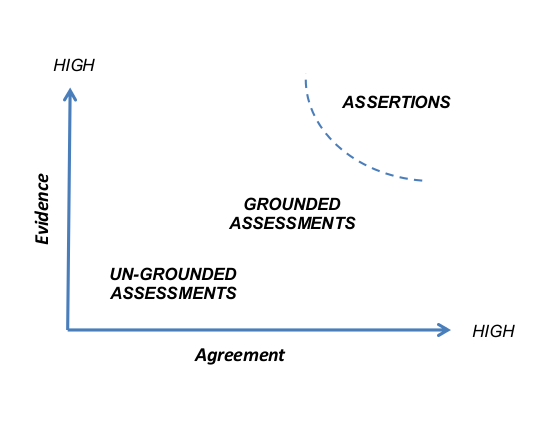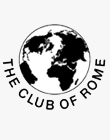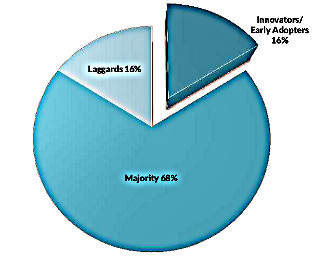Will government action ‘fix’ sustainability? Really?
Most human behaviour is dictated by our opinions and beliefs about the world. If we don’t examine and test them, we can end up becoming impotent, angry and depressed. In the sustainability game and especially in the media, one limiting belief I come across repeatedly is that “Sustainability requires government action.”
This showed up in a recent Forbes article. I almost got excited when I read the heading The Climate Needs Aggressive CEO Leadership – and then was disappointed (but not surprised) to read the content. While “CEOs are well-positioned to educate the public and policymakers that climate policy is critical for stable long-term economic growth… “, there’s a lot of other, more powerful actions they could be taking.

CEOs are the people who set the design criteria for the development, construction, supply and delivery of the products and services that consume material and energy resources. They have far more direct and immediate influence over the designers, engineers and manufacturers within their organisations and supplying to their organisations that they could be wielding.
Activists are also limited by their assumptions. Imagine what would happen if the 300,000 activists who “took to the streets of New York for the People’s Climate March” turned their attention to demanding CEOs take action to implement Circular Economy business models, Industrial Ecology-based supply chains and biomimicry-based product design?
Imagine if those 300,000 activists managed to convince Apple to do to devices what they did to music with iTunes – turn music from a product (CDs & records) into a service? Or to design their devices to facilitate easy re-manufacture using renewable materials? Imagine!
Do we truly need to put a price on carbon? Will it make that difference – or will it distract us from the fundamental design shifts required? Could it be more useful to leverage the design smarts of entrepreneurs like Mark Herrema, who’s put together the technology to capture carbon at the smoke stack and turn it into plastic packaging for Dell?
Our assumptions fundamentally limit our effectiveness in delivering innovation success…
It’s really useful to evaluate our operating assumptions to determine whether they show up as:
- True assertions that have a high degree of evidence and agreement (e.g. “It is 23 degrees centigrade outside”); OR
- Assessments – also called opinions (e.g. “It is a nice day” – which is subjective, depending on individual likes and dislikes.)
Whether you assess that a) sustainability is about top-down action from global and national governmental organisations; b) sustainable business is expensive; or c) consumer frugality is the answer – take some time to evaluate your assessment.
Is it well-grounded? How much evidence can you cite of global and national governments have in the past taken effective action? What evidence can you cite of ineffective action or inaction from national and global government?
What evidence can you cite of the successful business innovation projects that have delivered economic, social and environmental benefits? Where’s your proof that consumers using less will make enough of a difference as long as products are delivered from a 19th century take/make/dump supply chain?
Is it useful?
How useful is your assessment? How does it limit or enable you in taking action? How good are the results you are getting from the actions you’re taking?
An alternative perspective is that “…the main contribution will come from the private sector which alone can deliver the technologies, innovation and investment needed to sustain a stable, equable global climate…” (NOTE: This does not propose that all business currently acts sustainably – but that specific businesses CAN and have delivered powerful sustainability innovation and investment.)
Some examples that we can cite include:
- InterfaceFLOR – corporate sustainability champions since the 1990s
- IKEA – who took on The Natural Step decades ago
- The growing list of social entrepreneurs and B-corporations making big changes in the world. See Sustainia’s most recent Top 100.
Learning how to evaluate the quality of the assessments that you operate on can make a big difference to your effectiveness as a change agent.
Grounding your assessments and opinions…
Here is a series of questions to help you ground your assessments.  It’s drawn from one of my favourite coaching resources – “Coaching to the Human Soul”:
It’s drawn from one of my favourite coaching resources – “Coaching to the Human Soul”:
- How does it serve me to hold this opinion? What future actions might it influence?
- In which area of life or work am I holding and using this opinion?
- What standards or judgments am I using to support holding this opinion?
- What specific, observable, measurable facts am I using to support holding this opinion?
- What specific, observable, measurable facts are there that contradict this opinion?
If you want to explore the assessments that could be limiting your power as an innovator, contact us to schedule a complimentary introduction to our coaching/mentoring program Conversation Skills for Change-Makers
Adapted from “Are your beliefs limiting your effectiveness?”, published in our September newsletter.





